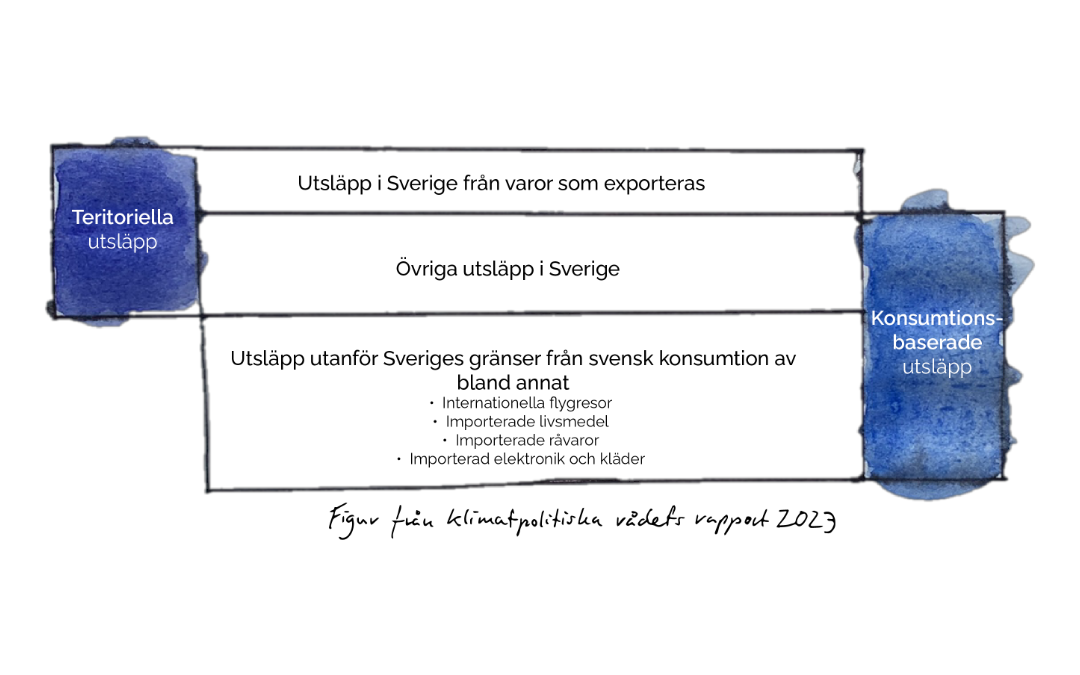A country’s consumption-based emissions are the emissions caused by the consumption of its residents, regardless of where in the world these emissions occur. This also includes emissions from the production of the goods consumed. This concept can be contrasted with a country’s territorial emissions, which are the emissions produced within the country’s borders. Territorial emissions are typically used in international agreements and negotiations, for instance, for greenhouse gases. Sweden has set targets specifically for territorial emissions of greenhouse gases. However, some municipalities and regions have also established targets for consumption-based emissions.
Often, when people discuss consumption-based emissions, they mean greenhouse gas emissions, but it’s also possible to calculate consumption-based emissions for other pollutants. In some calculations, only household consumption is included, but typically public consumption (such as healthcare and education) and, occasionally, emissions related to investments (like new roads or factories) are also included. In Sweden’s official statistics on consumption-based greenhouse gas emissions, all of these components are accounted for.
Read more: Three Methods for Calculating Climate Impact Emissions (In Swedish)
New Methods and Environmental Indicators to Support Policies for Sustainable Consumption in Sweden (In Swedish) (In Swedish)
About author:
Göran Finnveden
Program Director and Professor in Environmental Strategic Analysis at the Department of Sustainable Development, Environmental Sciences and Engineering (SEED), KTH, Stockholm
My research is focused on sustainable consumption, circular economy and methods for environmental and sustainability assessments of different types of products and systems. In the program I am the director and also leading a project on sustainable consumption and macro-economic effects.
